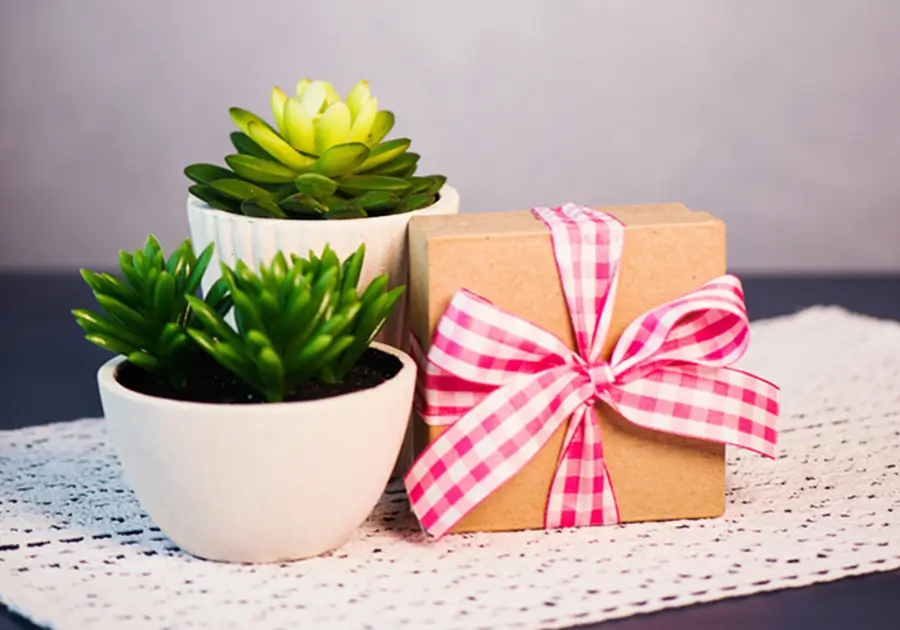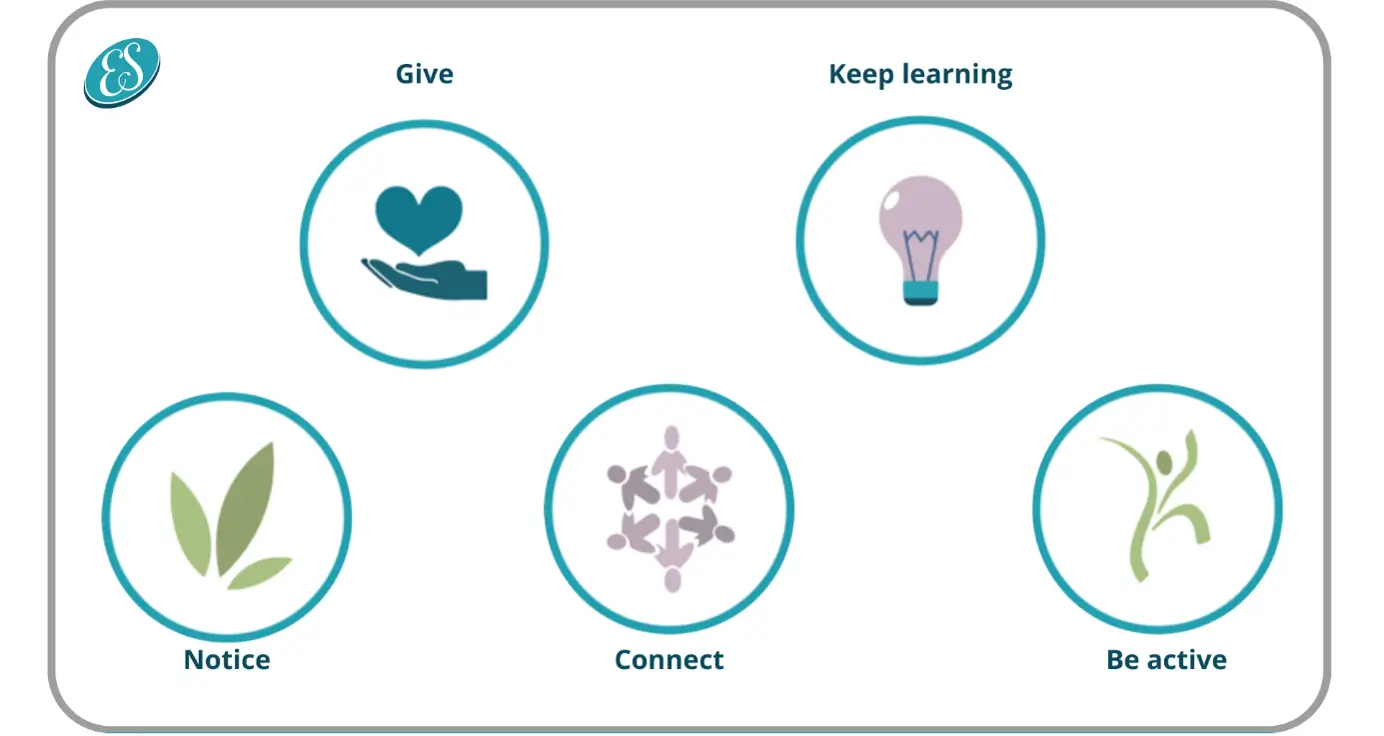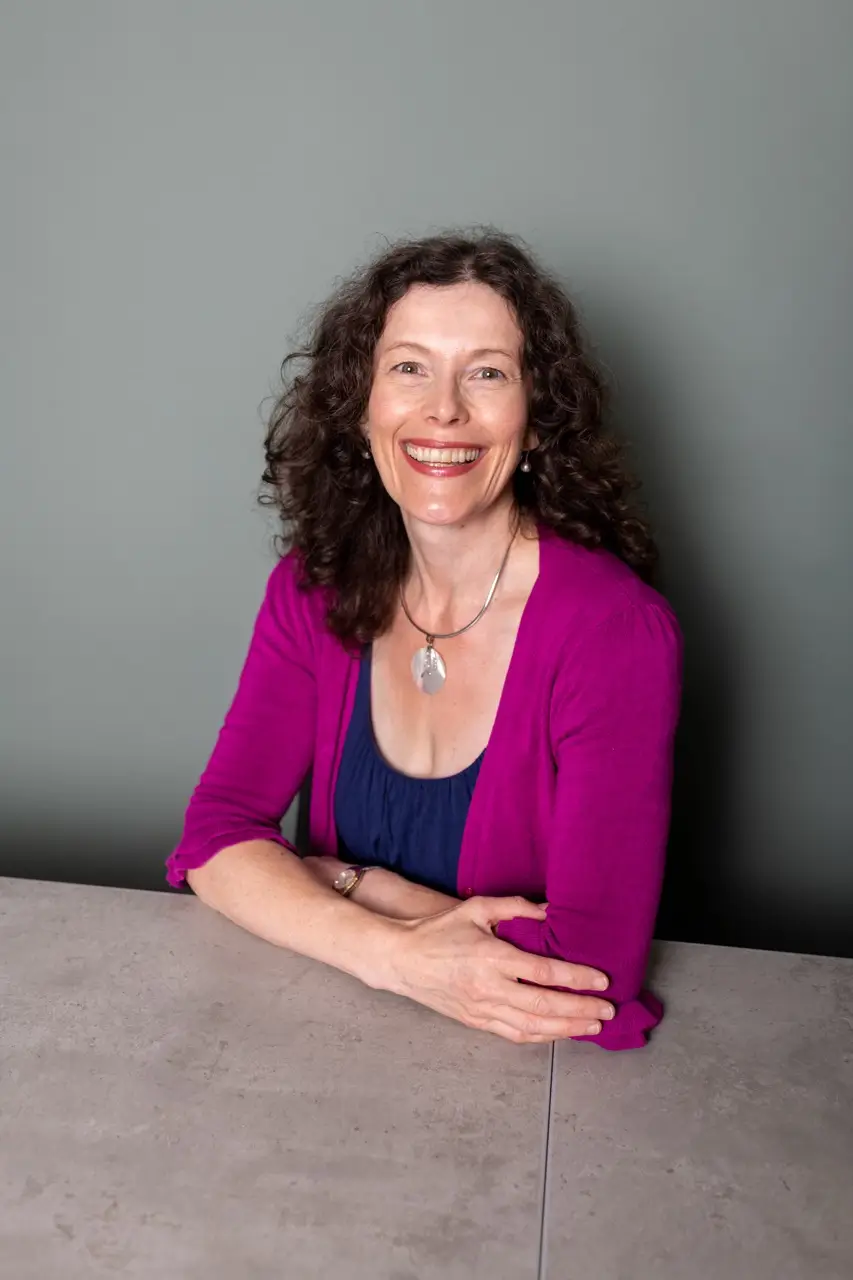

You may well have heard that ‘Give’ is one of the 5 ways to wellbeing, along with Keep Learning, Notice, Connect and Be active and since I care about promoting evidence-based and informed research, what's not to like?!
Well, there's a bit more to it than that.
The value of any research comes from its practical and nuanced application: people finding manageable helpful ways to personalise guidance to their unique circumstances and ways of working.
If you search the 5 ways of wellbeing you'll have a wealth of versions to explore, some will resonate more than others, one of my favourites is A personal guide to the 5 ways to wellbeing from Devon Partnership NHS because of its invitation to reflect and a 'no one size fits all' approach.

For this newsletter the focus is on the Give and of course I'll be sharing the benefits rightly promoted. But personal experience and observation has always compelled me to promote Giving with boundaries, when delivering talks and training. Boundaries has become one of my 'hot topics' to share when it comes to workplace mental health.
According to research and plenty of anecdotal experiences...
A sense of fulfilment and joy, which come from knowing we've made a positive impact on someone's life.
Enhanced Well-Being which can improve mental and emotional well-being because being generous can trigger the release of feel-good chemicals.
Improved Physical Health, including lower blood pressure, reduced risk of chronic diseases, and even increased longevity.
Strengthened Relationships with loved ones, colleagues and the community through a sense of connection and empathy. The shared experiences and being part of something bigger and meaningful can deepen bonds and create a sense of unity.
A positive impact on our community and beyond: Generosity has a ripple effect, one small act can inspire another and so on. I love the word 'synergy', together we're greater than the sum of our parts and that works for kindness and compassion too.
We don't have to be officially volunteering to be actively and consciously giving. We can give in small ways, a smile and a genuine thank you costs nothing and of course there's the power of listening. One of the key ways I try to give is regularly reminding myself to practise Steven Covey's 'Listening to understand, not to reply'. Quite simply...
"Listening to understand, not to reply,’ with a non-judgmental, open mindset is the biggest gift you can give someone in distress."
Even in a crisis situation, you’re not expected to listen for hours, just long enough so that someone feels heard and you can encourage them to link into support.
Silence can be a gift too, someone may not have much to say, or they may need to talk lots. Either way just being there sends a powerful message.
Obviously I celebrate the benefits that have resulted from the growth in mental health awareness that was building pre-Covid and amplified since. I also have concerns that already caring/giving people take away the message from generic training and messaging that they must simply care and give more.
The vital aspect of understanding roles, responsibilities and boundaries is often absent and over time negative consequences result from often well-meaning initiatives, in our professional and home lives.
In the words of the iconic Brene Brown:
The alternative to not setting boundaries is resentment, anger and gossip.
And from what I've come across in my travels, particularly with caretaker roles, I'd add burnout, compassion fatigue and vicarious trauma too. Here are some generic definitions:
Burnout- Physical, emotional, or mental exhaustion due to constant giving without proper replenishment.
Compassion fatigue- Experiencing physical, emotional, or mental exhaustion due to constant giving without proper replenishment leading to a reduced ability to feel empathy and compassion.
Vicarious trauma- absorbing the emotional toll of others' trauma e.g. through listening to their stories or witnessing their suffering leading to a negative impact on your own wellbeing and mental health.
Getting more comfortable with saying no is a key skill to build in order to set and maintain boundaries, and here's a quick re-frame for the guilt that can arise from the feeling we're denying someone something.
When saying no to others we're saying Yes to ourselves or Yes to someone else, maybe our team or a loved one.
Here’s an anecdotal example of needing to set healthy boundaries to create sustainability within their Giving role from someone who works part-time and is a mental Health First Aider. Whilst they managed their boundaries well in their day-to-day volunteer role when outside the classic Mon-Fri 9-5 schedule, they found it much harder saying they weren't available to take MHFA related calls around their own part-time hours.
To sensibly continue in this role they have now properly communicated their part-time hours and have concluded:
I'm having to acknowledge to myself there's only so much I can do as a Mental Health First Aider.
That's essential self-care and safety in action!
I've always emphasised healthy boundaries when delivering workplace mental health training and I'm really pleased it's now a core element of the new 2 day offering to become an MHFAider®. How an organisation plans to support this kind of role is an essential consideration as part of an.
I had an incredibly rich experience running support groups over several years for a small mental health charity, including being invited to be a trustee. This gave me outstanding insights that shape my professional and personal offering in the professional, community and personal mental health space.
It also started to take over my life somewhat due to some complexities around organisational culture and leadership styles, compounded by challenges common to small charities competing for funding.
Ever since my adventure to Oz, which provided a little escape from formal volunteering, I've become more discerning. My giving now focuses on generously sharing learnings and training on a case-by-case basis with thoughtfully run initiatives. For example, as well as being a proud Associate of Oakleaf Enterprise, I have supported their Mental Health Leaders network and cannot recommend them highly enough.
Firstly, because of how they support their community in Surrey with such rich range of initiatives and secondly because they do so in such a sustainable way. They both educate local organisations and promote the respecting of boundaries. I share an example in the good practices from charities section below.
The formal volunteering role I’ve recently felt able to sign up to is to my local Chamber of Commerce because there is a healthy sense of community and exchange of ideas, with a flexible set-up of subgroups for projects like the iconic Gold Hill Cheese Race. It’s understood we dip in and out according to our availability, my last task was delivering posters to the local shops and businesses, a welcome break from admin on a sunny day!
Just as important as giving is receiving! Being good at one doesn't mean we're any good at the other! Often Givers are way more comfortable giving than receiving.
Bet you've said or heard the classic British dismissive response to a compliment about an outfit, something like 'oh this old thing, I got it from a charity shop years ago.'
For some of us the charity shop bit is a badge of honour, but that aside, let's consider the needs of the Giver of the compliment. It's a two-way process and to make it a win-win-we can enjoy the compliment to feel good about ourselves and enable the Giver to experience those feel-good hormones too!
Here's a quote from the personal guide to the 5 ways of Wellbeing I mentioned earlier:
By becoming more comfortable with the ‘give and take’ of everyday life we build ourselves up as well as give opportunities to others - Devon Partnership NHS.
Thank you Jen Clay from Oakleaf Charity for her insights below on the importance of best practice from charities in how they receive voluntary help. This is essential to enable volunteers to give in a manageable way for their wellbeing and fully enjoy the benefits of giving.
If anyone gives anything for free to a charity, whether time, money, an introduction or 'in-kind' support, it's so important we acknowledge this as a gift and never take it for granted - Jen Clay Oakleaf.
I have experienced gratitude first-hand when receiving handwritten personal thank-you cards from two charities I delivered complimentary sessions to. It gave me a spring in my step all day!
And if you don't feel appreciated, have a courageous conversation with yourself and the charity, organisation or individual. One colleague shared that after 20 years volunteering, she didn't even get a thank you after she said her goodbyes. She feels a bit sad for the way it ended and mostly very relieved she can now be more flexible and discerning with her giving.
I don't want to sign off on that note, thankfully there are wonderful volunteer opportunities and community groups and I've always gained more than I've lost even from challenging Giving situations!
Ask around for recommendations and check out the official government volunteering search resources.
Give yourself the gift of giving.
And also do it in a way that respects your own needs and supports you in the long term.
Happy giving!

Hi, I’m Emma! With 30 years in Learning & Development and varied roles, I specialise in helping workplaces navigate the 'messy reality' of mental health conversations with confidence as part of a broader strategy. My experiences in a range of workplace settings, and as a mental health charity trustee and member of NHS suicide awareness working groups, drive me to provide practical approaches that create real impact. I ensure every session is engaging, down-to-earth, and actionable.
Read More Of My Blogs
Read More Of My Blogs